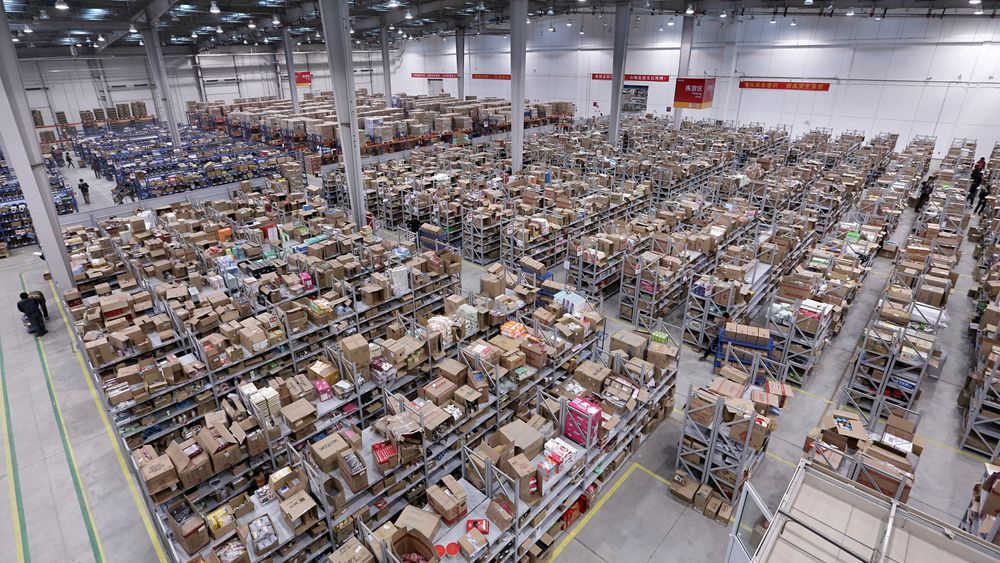
China
21:06, 27-Dec-2018
Laws that aimed to make Chinese lives better in 2018
Updated
20:19, 30-Dec-2018
By Yao Yao

Editor's note: As 2018 draws to a close, CGTN takes a look at three key laws and regulations that were passed or took effect during the year in China and how they are expected to influence people's lives for the better.
First regulation on user privacy protection in express delivery business took effect
Due to booming e-commerce and online shopping, the express delivery business in China handled more than 40 billion parcels in 2017, roughly 100 million per day. And from January 1 to October 30, a total of 39.43 billion parcels were delivered.
This fast development was not without its problems. For example, some customers complained they could not find their parcels at the places where the deliverymen put them, others found their parcels were opened by someone else.
To regulate the huge market, The Provisional Regulations on Express Delivery, first of the kind in China, took effect on May 1.
According to the regulations, express delivery enterprises or their staff can be fined up to 100,000 yuan (14,512 U.S. dollars) if they sell, leak or provide customers' information to a third party without informing them.
As for the customers whose packages were lost or opened by others, they could claim compensation from the express delivery enterprises or other organizations in charge of the packages.
Some users on Twitter-like Sina Weibo praised the regulations. A user named Shanmenchashu said it is a good way to prohibit the sale of customers' personal information. Others said the penalty should be higher than 100,000 yuan.
First law on the prevention and control of soil pollution passed

After comprehensive soil management, a mountain hit by rocky desertification is now covered with fruit trees in Huaying City, southwest China's Sichuan Province, June 19, 2018. /VCG Photo
After comprehensive soil management, a mountain hit by rocky desertification is now covered with fruit trees in Huaying City, southwest China's Sichuan Province, June 19, 2018. /VCG Photo
To better protect and improve the living and ecological environment, a law on soil pollution was passed unanimously in August, following the Law on the Prevention and Control of Water Pollution and the Law on the Prevention and Control of Atmospheric Pollution, which respectively took effect in 1984 and 1987.
On August 31, the Soil Pollution Prevention and Control Law of the People's Republic of China became China's first law targeting soil pollution. The law will take effect on January 1, 2019.
To free people from a life-threatening environment, the law stipulated that the prevention and control of soil pollution should abide by the principles including prevention and protection first, risk control and public participation.
Heavy penalties will be imposed for activities that violate the law. For example, organizations which provide fake reports on soil pollution will be banned permanently from operating.
"The law has a great significance," said Zhang Guilong, a senior official with the Legal Affairs Commission of the Standing Committee of the National People's Congress.
Zhang said that the law provides a legislative guarantee for China's green land battle.
"The healthy soil can breed quality farm produce," said Dang Yongfu, an expert in soil management.
The amended individual income tax law increases people's monthly income

Customers sit at a communal table inside a Starbucks roastery store in Shanghai, May 11, 2018. /VCG Photo
Customers sit at a communal table inside a Starbucks roastery store in Shanghai, May 11, 2018. /VCG Photo
The seventh amendment was made to the 1980 individual income tax.
China's top legislature passed the amendment on August 31, raising the minimum threshold for individual income tax from 3,500 to 5,000 yuan per month, or 60,000 yuan per year, from October 1.
Wage earners are reported to have benefited from this change. In October, the new law saw a reduction of 31.6 billion yuan in the country's individual income tax revenue, because more than 60 million workers don't pay the tax anymore, according to the figure released by the State Administration of Taxation.
The figure also showed that the taxpayers, whose salary is less than 20,000 yuan, saw a total tax deduction of 22.4 billion yuan.
"Thanks to the new individual income tax law, now the individual income tax I have to pay has reduced from more than 400 yuan to less than 100 yuan," said Zhang Liqiong, a high school teacher in Shenzhen City, south China's Guangdong Province.
The year also saw the passing of some other new laws including an E-commerce law, which was passed on August 31 and will take effect on January 1.
"Closely related to people's daily lives, these laws and regulations introduced or enacted in 2018 show that China's legal system becomes sounder and focuses more on people's livelihoods," said a 29-year-old legal practitioner in Beijing surnamed Cai.
Cai added that the new laws and regulations also highlight more scientific management on new industries and strengthened protection on ecological environment and citizens' legal rights.

SITEMAP
Copyright © 2018 CGTN. Beijing ICP prepared NO.16065310-3
Copyright © 2018 CGTN. Beijing ICP prepared NO.16065310-3